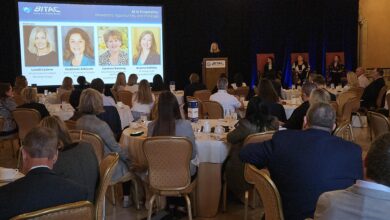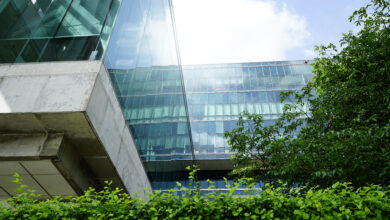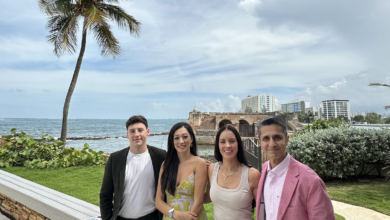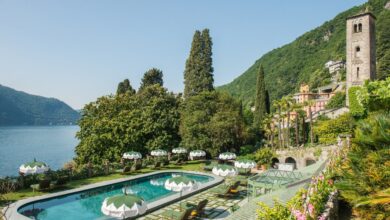Doubling Down During Pandemic
By Larry and Adam Mogelonsky | February 2, 2021
“You take the business wherever and whichever way it comes, but you need to be prepared to serve it,” started Andrew Carey, CEO of Newport Hospitality Group (NHG), during our latest conversation. Having known Carey for over two decades, I reconnected with him to deep dive on how the company and its managed properties were fairing during these topsy-turvy times. As background, NHG is a property management and development company with over 50 properties under its belt primarily along the Eastern Seaboard. The company added 11 new managed hotels in 2020, representing a growth of 27.5% during the pandemic.
“What we learned from the 2008-2009 downturn was that you don’t hunker down, you double down,” Carey continued. “And we’ve adapted the playbook we developed 12 years ago to today’s situation. We saw an opportunity to have our hotels be first back into the market following the lockdowns in Spring 2020 by not furloughing management and instead reinvigorating our engagement with the on-property teams so that they could quickly pivot in response to any week-over-week COVID-19 change.”
It’s this perpetual opportunity-seeking strategy that really amazes me because it gives hope for our industry’s recovery and for the countless team members that hotels around the world have had to let go to stay afloat. The case study of NHG shows that furloughs are but a temporary salve, one that doesn’t set a hotel up for success later on down the road when revenue opportunities start to pop back up.
Pre-pandemic, NHG was firing on all cylinders with occupancy levels blooming in calendar year 2019. Looking back on Q2 and Q3 of 2020, the STR data reveals that its properties were able to maintain 6% more RevPAR than their competitive markets. Key to this was that, in the spring, the company focused and retained its operations team rather than reducing head count to save money.
They realized that shrinking local hotel teams would be unable to manage the coming sales and operational challenges presented by the pandemic and that the NHG corporate teams would need to pick up the slack. The relationship between managed hotel and corporate oversight was thus the opposite of laissez-faire, with executives moving to proactive virtual visits and transforming the sales position into a remote desk job to stay top-of-mind with clients.
Next, by not putting all of its onsite managers on short-term leave during the dark days of March and April 2020, NHG properties were able to diligently work towards setting up new safety guidelines before competitors were able to, and even as those protocols were still evolving. This meant that once a staged reopening order had been issued by a state-level government, NHG-managed properties were already set to welcome guests and they were ready to greenlight a highly targeted e-commerce advertising campaign to maximize transient bookings from both direct and OTA channels.
Then for groups, flexibility to new demands became instrument for keeping this segment in place. Rather than letting contracts go stale, NHG was able to creatively counter offer and do so with speed.
For example, due to a municipal mandate preventing a host property from opening its event space, a cancelled wedding scheduled for this past summer was bifurcated into a smaller, outdoor nuptial with a whole locked-out floor for the group, along with a big reception commitment for the following year, barring any renewed lockdowns, of course. In order to swiftly turn around this new proposal and keep the deal from souring, the sales manager had to confirm with several other department heads within a couple days’ time that they could pull it off safely—a task that would only have been possible had the necessary operational pieces already been put in place.
Another aspect to this is the delayed reopening of onsite amenities. Carey noted that having a restaurant open downstairs is a huge draw—even in the age of Uber Eats, Grubhub, SkipTheDishes and numerous other app-based ordering platforms—because people want to escape the confines of their rooms to dine. Being first back into the market therefore meant being the first hotel in a given territory to reopen its F&B outlets, giving each property a strong competitive advantage for reservations.
To summarize the conversation that Carey and I had, here are three key pieces of wisdom to take away from NHG’s success in calendar year 2020:
- Proactive versus reactive. You can’t want for direction from the brand; you have to be continually thoughtful about what other leaders are doing. Having fewer immediate needs due to lack of occupancy simply means that now is the time to add value in anticipation of greener pastures ahead. Businesses need to actively plan for the next phase rather than cocoon in fear.
- Get revenue by setting up the ‘yes.’ As illustrated by the wedding example, in order to be ready for any shift in customer demand you have to map out each operation well in advance. If you want to attract displaced travelers or frontline workers—as we saw this past spring—you need to already have designated room sections where isolation and no-contact stays are enabled. If you are still ‘in the process’ or considering a move into any of these segments, the business will have already gone elsewhere.
- Triple your executive communications. Forcing an outright shutdown in some territories left a bad taste in many owners’ mouths and trust needs to be restored amongst individual hotel owners, multi-national corporate brands and regional management firms. For the latter entity, top-level property engagement can help to resolve this by giving onsite associates the confidence they need to do their jobs effectively, which is then paid forward in the form of better guest service and more revenue to thereby safeguard owners’ interests.





Get involved!
Comments